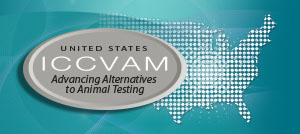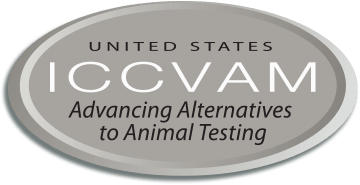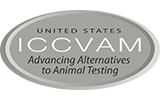Contributions to OECD activities
ICCVAM member agencies participate in the development and review of chemical testing guidelines issued by the OECD Test Guidelines Programme. OECD test guidelines are used by government, industry, and independent laboratories of the 38 OECD member countries to assess chemical safety. The U.S. National Coordinators for the OECD Test Guidelines Programme, who are members of ICCVAM, solicit and collate U.S. comments on draft test guidelines, guidance documents, project proposals, workshop reports, and other documents of the Test Guidelines Programme. The National Coordinators represent the United States at the annual meeting of the Working Group of National Coordinators and in other test guideline development activities. One or more ICCVAM subject matter experts may join the U.S. National Coordinators at this meeting.
In 2022 and 2023, ICCVAM agencies commented on draft OECD documents through the U.S. National Coordinators. ICCVAM members and/or NICEATM staff also supported the Test Guidelines Programme during 2022 and 2023 by:
- Supporting OECD activities to revise Test Guidelines Programme resources and processes to better support uptake of emerging technologies. Workshops held in December 2022 and December 2023 focused on how to prepare for emerging technologies and practical and financial aspects of validation studies, respectively. ICCVAM members assisted in organizing these meetings and provided expert participants.
- Co-leading a project and participating in an OECD expert group coordinating revision of Guidance Document 34 on validation and acceptance of new or updated test methods for hazard assessment. Revision of this document was also a key topic of discussion at the 2023 ICATM coordination meeting.
- Leading development of the OECD Omics Reporting Framework. This modular framework released in 2023 facilitates data sharing for toxicology experiments using various types omics approaches (i.e. transcriptomics, metabolomics), increases transparency of omics data processing and analysis approaches, enables quality assessments, promotes reproducibility in omics experiments, and fosters the uptake of omics data for use in regulatory processes (Harrill et al. 2021).
- Contributing to a proposal to update OECD Test Guideline 496 for in vitro test methods to identify eye irritants to add the OptiSafe test method to the guideline.
- Serving on an expert group developing a guideline for defined approaches for skin sensitization. This group supported the development of Guideline 497, Defined Approaches for Skin Sensitisation, issued in 2021. Guideline 497 is the first internationally harmonized guideline to describe a non-animal defined approach (DA) that can be used to replace an animal test to identify skin sensitizers. NICEATM and ICCVAM scientists are currently contributing to two proposals to update Guideline 497 to include new information sources for existing DAs, and new DAs for quantitative risk assessment.
- Participating in a group developing a Case Study on the Use of an IATA for Identifying Androgen Receptor Active Chemicals, which has been submitted to the OECD Working Party on Hazard Assessment.
- Serving on the Validation Management Group – Non-animal, which focuses on evaluation of new methods for identifying endocrine disruptors.
- Serving on an expert group considering test batteries for developmental neurotoxicity (DNT). NIEHS and EPA scientists developed a case study on application of IATAs for DNT, which was published by OECD in 2022. Expert group members also contributed to a 2023 guidance document on evaluating data from in vitro DNT test batteries.
- Participating on an expert group evaluating methods to assess thyroid disruption.
- Participating on an advisory group on emerging science in chemicals assessment.



